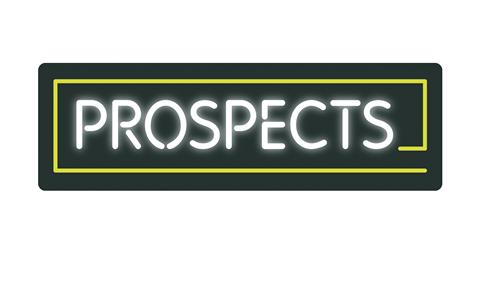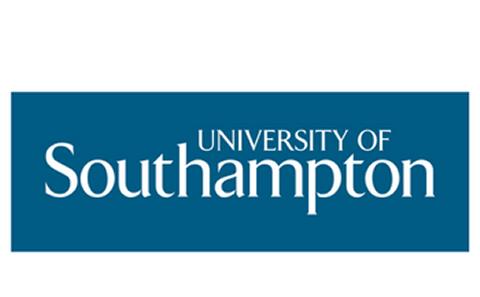
Prospects
Provides information and advice on postgraduate study covering available courses and the various sources of funding including the new Government-backed Masters loans.
Approximately 20% of Southampton graduates enter postgraduate study or research each year. Deciding to embark on a programme of further study is a big decision and one that Careers, Employability and Student Enterprise are happy to discuss with you. Use our further study information below to help you consider your reasons, your options and how to apply.
If you are already on a programme of further study, please see our Postgraduates page for advice on how to plan your career.
There are some excellent resources available to help you be clear on what is involved in postgraduate study before you commit to a course:

Provides information and advice on postgraduate study covering available courses and the various sources of funding including the new Government-backed Masters loans.

Use their 'Practical Guide to Planning an Academic or Research Career' which details the process of moving from your undergraduate degree into academia.

These pages offer advice and information on courses available at this institution and funding options.
For information about the next Postgraduate Open Day at the University of Southampton, please see the Postgraduate Open Day webpages.
For further advice on whether to opt for a further study programme and how to apply, see the commonly asked questions below or discuss your options in an Ask the Adviser appointment.
For many areas, postgraduate study is something that you can do at any time in your life. If you need further help in deciding whether postgraduate study is for you, check out the postgraduate study section on Prospects or come and talk to an adviser for more tailored help. You might also consider speaking with your personal academic tutor (PAT) to gain an academic perspective too.
The University cannot accept responsibility for external websites.
You have two main options - either a Postgraduate Taught (PGT) course or a Postgraduate Research (PGR) programme:
Masters courses (MA, MSc etc) are generally one year full-time (or two years part-time). They can either be a continuation of your academic studies or a preparation for a specific career e.g. journalism, personnel management or IT. Typically they involve nine months of formal teaching (lectures, seminars, exams) followed by a three month independent research project. Diploma or Certificate courses are nearly always training for a specific career e.g. teaching, social work, law, journalism, librarianship.
Additionally you may consider a range of specialist short courses including many courses that are not aimed specifically at graduates but can be helpful for career development. Examples include intensive courses giving IT skills, bilingual secretarial skills or teaching languages. Many such courses are offered at local further education colleges or online through providers such as LinkedIn Learning or Coursera.
For more information on available Masters courses worldwide, please visit FindAMasters.
Research involves the in-depth study of a specific field, usually related to your first-degree subject. Most research degrees involve working closely with one or more experienced researchers who supervise your study.
PhD is the best known research qualification. It will take at least three years to complete full-time and much longer if taken part-time. Assessment involves a written thesis and an oral exam (the viva). MPhil and MRes are other research qualifications and can be taken as a preparation for a PhD.
Research opportunities are often advertised in the press - The Times Higher Education Supplement and The Guardian and in magazines and specialist publications linked to specific occupational areas. KTPs, EngDs and PhDs are also advertised on academic job sites, FindAPhD or direct through the university hosting the programme.
Significant effort has been made in recent years to support research students and to analyse outcomes. Publications such as What do researchers do? can help you figure out what job the qualification may lead to.
Start thinking about your options as early as possible - at least 18 months before you want to start a postgraduate programme, as you need to apply early in your final year for popular courses.
For research courses - find out which institutions have departments offering courses in your research interests. Issues to consider include:
Many postgraduate programmes require the submission of a personal statement as part of the application. This is essentially a one page summary of information relevant to your application to demonstrate your suitability to the programme of study that will be read by an admissions selector/tutor. Often this will be supported by an academic referee or two.
Aim to include:
Further information can be found at:
Established research projects may not require a research proposal however some applications for a PhD may require one. This is essentially an outline of your proposed project and should include a clear research question and approach to answering it. You should also highlight the significance of the research (i.e. it's potential impact) and how it adds to, develops (or challenges) existing literature. The proposal should persuade the academic selector of the importance of the work and that you are the right person to undertake the research i.e. you have the right academic credentials, experience and mind-set to succeed. These documents vary in length but are normally around 2000 to 3000 words.
Further information can be found on:
You may be required to undertake a psychometric assessment as part of the recruitment process for further study courses. We have a selection of practice tests available via our UoS Career Hub, including those specific to postgraduate study and Medicine.
Opportunities for postgraduate study abroad are increasing. You will get the chance to learn about another culture, develop international experience and work with specialists in another country.
Applying for a course abroad needs very careful planning and may involve considerable financial commitment.
Getting funding can be difficult but there are a number of awards and scholarship schemes that you may be able to apply for. You may want to explore Studee, the Prospects website and organisations such as Fulbright Commission (study in the USA), DAAD (study in Germany) or Study Options (study in Australia and New Zealand) for ideas. Please also see our Funding for Study Abroad and Exchanges webpages.